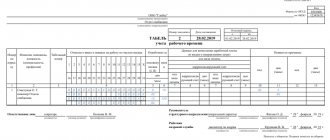What it is
If an employee spends most of his working time outside the organization, and this position is not limited to a certain period, then the work is considered traveling. The legislation does not establish a list of works that fall under this definition. Consequently, these are any professions or positions associated with constant travel.
There is no clear definition in the Labor Code of the Russian Federation that this is a traveling nature of work. It is compiled based on judicial practice and explanations of government bodies. The constant criteria are:
- The performance of official duties by an employee requires travel;
- The employee spends most of his working time outside the organization.
The remaining criteria are established by the employer, taking into account the position and duties performed by the employee.
https://youtu.be/6n3HrSTzUNk
What is the nature of work in an employment contract?
The nature of work is the norms and specifics of performing functional duties, which provide additional difficulties for the employee.
They are expressed in the fact that the employee may not have a specifically established workplace where he is obliged to spend his working day.
Provisions on the workplace, work time and rest are mandatory conditions that are fixed in separate clauses in the labor contract concluded by the parties, along with other requirements.
IMPORTANT: Only the workplace specifically established in the employment contract, indicating the address and working hours, allows for supervision of compliance with discipline, as well as imposition of disciplinary liability.
This regulation for making entries is regulated by Article 57 of the Labor Code of the Russian Federation. But sometimes it is impossible to reliably determine the workplace, which is due to the nature of the work.
Also for this reason, it is sometimes impossible to set a fixed work schedule. Some professions, which will be discussed below, fall under the criterion of such situations.
In the event that a profession falls under one of the special criteria, this circumstance must be indicated in a separate provision of the contract.
If the work is performed according to a set schedule, at a fixed workplace, this item is not necessary to fill out.
What types are there? Examples of different types of activities
Now about the types of work characteristics in an employment contract. That is, what are they?
Non-standard situations are identified by one characteristic – the lack of a stable workplace.
They are divided into 3 types, in accordance with the characteristics required to perform their duties:
- mobile nature of work;
- on my way;
- traveling
Mobile work is characterized by the fact that workers are assigned to a workplace temporarily - for the period of performance of work.
When the job is completed, they move on to a new facility. This category primarily includes construction workers, road workers, or workers installing pipelines and other linear facilities.
This category also includes a number of agricultural professions, if the place of work needs to be moved or “moved” when driving pastures over long distances, transporting an apiary, etc.
The same applies to sawing wood, when workers need to change cutting areas. Work on the road means that professional activities are carried out only on the road.
That is, the person to whom this regime is established may be:
long-distance driver;
- driver or his assistant;
- conductor, steward (stewardess);
- pilot, aircraft navigators;
- captain, navigator or other specialist - on a ship;
- forwarder, courier (in certain cases).
The list of such specialties is quite extensive. They have one thing in common - the performance of functional duties is carried out only in the process of moving a vehicle (convoy) or a watercraft and an aircraft.
Traveling - this type of activity is characterized by blurred boundaries of definitions. The list of legislation does not contain appropriate criteria for its precise identification.
Therefore, the employer has to independently establish regulations on this type of duties, differentiating the traveling nature of work from regular business trips.
This difference is described in Government Decree No. 749, dated 10/13/08.
The business trip has a one-time registration and does not relate to the traveling nature of the activity.
Traveling refers to the employee’s movement to different sites during the day, but upon completion, he returns home just as after a regular shift.
Examples of professions that may fall into this category include:
- courier;
- adjuster;
- equipment installation wizards;
- postman;
- driver;
- forwarder;
- sales representative;
- manager
Unlike work on the road, there are no long distances between objects, and workers, in addition to transportation, also perform other duties.
Most of the work is performed within the same locality or close to it.
This category of activity includes agricultural work that requires systematic travel outside the populated area.
The listed types must be distinguished using legislative acts, including those of a regional and local nature.
In some cases, it is permissible to use the category “other” character. It is determined by the employer (field, expeditionary, rotational, home-based, etc.).
What is the employer's benefit?
The employer imposes this condition on employees due to important advantages:
- document flow associated with travel arrangements is reduced. There is no need for advance reports;
- Labor costs are reduced, payroll calculation and working time recording are simplified. Paying a salary is cheaper than the average salary for business trips. (according to Article 166 of the Labor Code of the Russian Federation, business trips of a traveling nature are not considered business trips);
- advantage in paying taxes;
- there is no need to create separate units where they do not exist and to equip workplaces;
- the length of stay of foreign workers on the territory of a subject not specified in permits increases.
How to apply
Let’s look at how to properly formalize the traveling nature of a specific employee’s work. This condition is stated in the organization’s collective agreement (if there is one). If it is not there, then the employer needs to issue a local regulation with criteria and a list of positions that require constant travel. In addition, this document reflects the procedure and amount of payments (Part 2 of Article 168.1 of the Labor Code of the Russian Federation). It is developed and approved by the employer, taking into account the opinion of the trade union body (if there is one). Establishes the procedure for registering trips, the form of reporting for trips, additional payments, etc.
The employment contract must indicate the territory within which travel is carried out, the amount of additional payments and allowances.
What features does an employment agreement have when the work is traveling? Sample document
If the employer does not plan to formalize this or that activity as traveling, the contract is drawn up as usual.
Then it is necessary to indicate the workplace, with the address, position and regulations for the performance of labor functions.
If these circumstances cannot be recorded, the nature of the activity must be entered.
The definition of the traveling nature of work must be established by the employer in a separate local act, which defines the grounds requiring recognition of the work as traveling.
In this case, you can be guided by the standards set out in the Letter of the Federal Employment Service, No. 4209-TZ, dated December 12, 2013.
The provisions of the contract are adopted by order, which is recorded in the employment contract, along with the provision on the nature of the work.
The contract should contain the following points:
- counterparties of the employment contract, with the presentation of personal data, name of the organization, code and legal address.
- Employer's TIN and other details.
- Place and date of conclusion.
- The duration of the contract (fixed-term) or only the date of hiring (indefinite).
- Place of work and position.
When traveling, the address of the office or administrative premises is indicated, followed by an indication of the nature of the work.provide the opportunity for a traveling person to return after work
- Terms of remuneration, which indicate the base rate and necessarily provide additional payment for the traveling nature of the work.
- Working conditions, where individual parameters of harmfulness (danger) can be identified.
- Nature of work. It is indicated that he is traveling, on the basis of the relevant local act, with reference to the local act and the order approving it.
- Other provisions are at the discretion of the counterparties.
The formulation of the traveling nature of the work may look like this: “Functional duties require a traveling nature of the work within the city of Moscow.” Or: “The work involves traveling within the city of St. Petersburg and the Leningrad region.”
After this wording, a clause on reimbursement of expenses is added, which indicates:
- all forms of reimbursement of expenses by the employer;
- compensation and additional payments.
The information entered must be previously stipulated in the local regulations on the recognition of work as traveling and must correspond exactly to the established volumes.
Payments can be made as a fixed amount to the basic salary, or expressed as a proportionate percentage of it.
There must also be a definition of travel distance, for example, within the city, to a suburban area. If trips around the region are envisaged, include them in the provisions of the contract.
The main thing is to take into account the possibility of the person leaving to return home after a working day. In other cases, business trips are arranged.
The employee must have a permanent place of work assigned to him. When indicating the traveling nature of the activity, he is not obliged to attend it during the working day.
Such a place may be a garage, warehouse, store branch or retail outlet. The specified premises and its address require maximum proximity to the field of activity. If this is not possible, the founder’s office, administrative building, etc. are indicated.
What is compensated?
In terms of payment, there are no changes in the traveling nature of work from 2020. The employee is reimbursed for the following expenses (Article 168.1 of the Labor Code of the Russian Federation):
- travel;
- rental housing;
- additional expenses associated with living outside your place of permanent residence;
- other expenses with the permission or knowledge of the employer.
Moreover, now the employer is obliged to reimburse expenses associated with business trips to employees whose permanent work is carried out on the road or has a traveling nature. The changes also affected the rules for reimbursement of additional expenses. The norms and procedure for compensation are not established by law, and the organization has the right to establish the amount and procedure for compensation itself.
According to the old version of the Labor Code of the Russian Federation, expenses were compensated in amounts no less than those established for travel expenses (Resolution of the Ministry of Labor No. 51 of June 29, 1994). Today, although expenses include the same types of compensation as business trips, their amount is established by the employment contract. The amount of expenses for business trips is not limited.
How to distinguish a business trip from traveling work
They travel independently from home to the sites for several hours every day. Can we pay them daily allowances and is there a standard for profit and personal income tax? Is it necessary to charge insurance premiums to extra-budgetary funds for them?
Of course, they can be paid a daily allowance, because they spend a lot of non-working time getting from home to the site and back. This was confirmed to us by the Russian Ministry of Health and Social Development.
From authoritative sources Nina Zaurbekovna Kovyazina, Deputy Director of the Department of Wages, Labor Safety and Social Partnership of the Ministry of Health and Social Development of Russia “Payment of daily allowances for traveling nature of work, when the employee has the opportunity to return home, is possible, but not mandatory. The decision on the payment of daily allowances is made by the employer himself. He also sets their size. It must be taken into account that when traveling, unlike a business trip, daily allowances are paid for non-working time spent by the employee getting to the site where he works and back home. But in practice, their size is usually smaller than for regular business trips. After all, during a business trip, the employee lives in another locality. It is also possible to economically justify the cost of daily allowance due to the traveling nature of the work. For example, an employee leaves for the site from home at 5 - 6 o'clock in the morning. Therefore, he is paid a daily allowance so that he can have breakfast in a cafe on the way.”
Thus, you need to independently determine the procedure for paying daily allowances to employees and their amount (Article 168.1 of the Labor Code of the Russian Federation). In particular, you can establish that daily allowances are paid only if the facility where the employee is employed is located at a significant distance from his place of residence. You can also set different amounts of daily allowance depending on how long it takes the employee to get to the site. For example, if the object is located at a distance from 100 to 150 km, then the daily allowance is 5% of the monthly tariff rate, from 150 to 200 km - 15% of the monthly tariff rate. The legislation does not establish a standard within which daily allowances for traveling work are included in expenses (Subclause 49, clause 1, Article 264 of the Tax Code of the Russian Federation; Letter of the Ministry of Finance of Russia dated August 18, 2008 N 03-03-05/87), are not subject to personal income tax and insurance contributions (Clause 3 of Article 217 of the Tax Code of the Russian Federation; Letter of the Ministry of Finance of Russia dated 06/07/2011 N 03-04-06/6-131). Therefore, the daily allowance, the amount of which you set in your position, can be fully taken into account for profit tax purposes. They may not be subject to personal income tax and insurance premiums (Subclause “i”, clause 2, part 1, article 9 of Federal Law No. 212-FZ of July 24, 2009 “On Insurance Contributions...” (hereinafter referred to as Law No. 212-FZ); paragraphs 2 clause 1 article 20.2 of the Federal Law of July 24, 1998 N 125-FZ “On compulsory social insurance against accidents at work and occupational diseases” (hereinafter referred to as Law N 125-FZ)).











